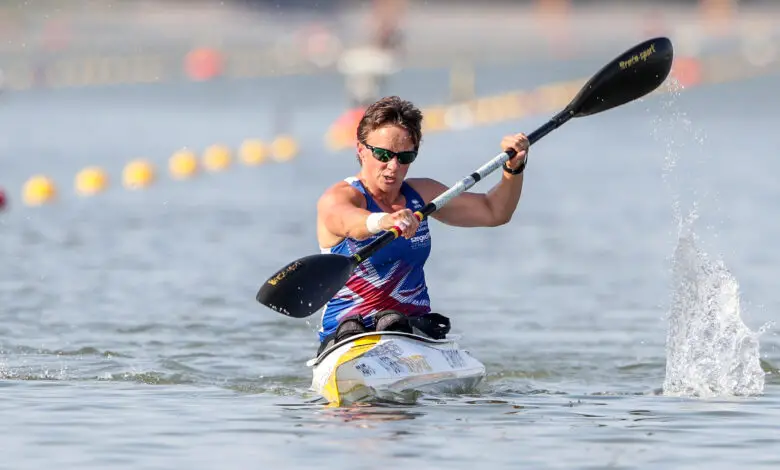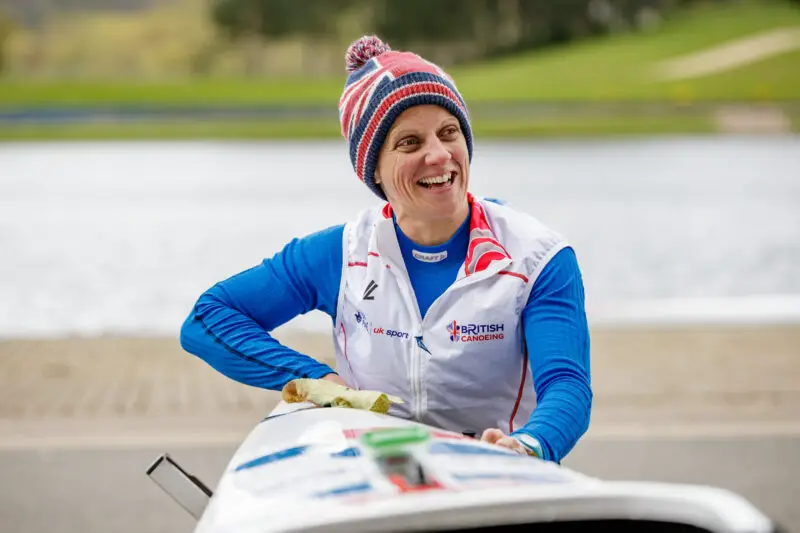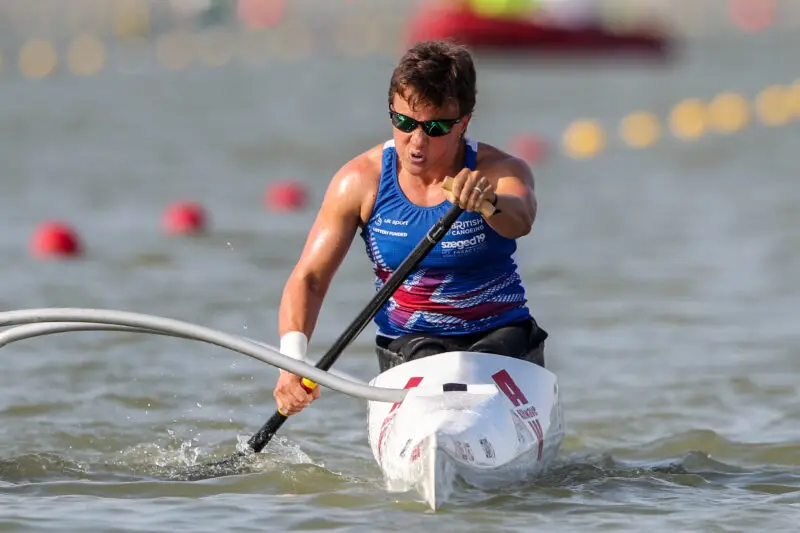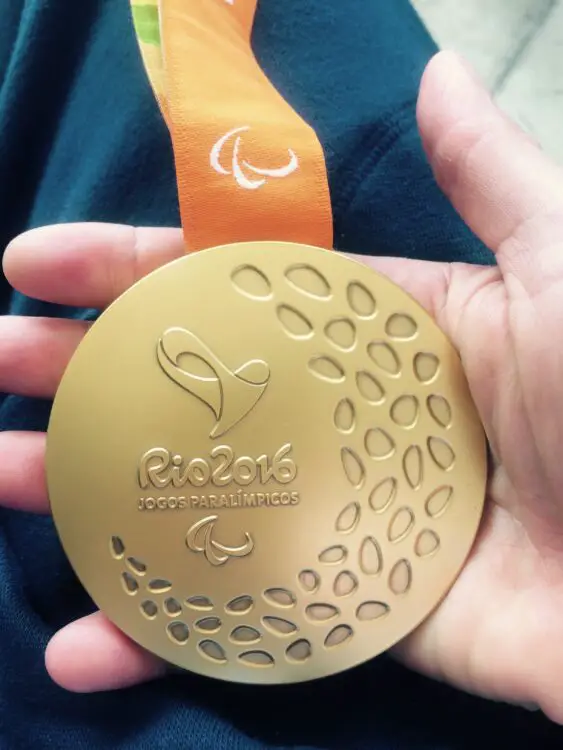
Tokyo 2020 Paralympics: Para-canoeist Emma Wiggs MBE in the spotlight
Disability Horizons is doing a series of interviews with Paralympians who are set to compete in the Tokyo 2020 Paralympic Games. In these interviews we will be talking about career success, highlighting individuals achievements and what they are most looking forward to at the games.
Emma Wiggs MBE is a Paralympic champion, eight times Para canoe world champion and former sitting volleyball player. She is set to compete in her third Paralympic Games in Tokyo this summer.
Our writer, Zubee Kibria, spoke to Emma about her career in sport as a para-athlete and how she is preparing to compete in the Tokyo 2020 Paralylympic Games.

Emma was hugely active as a child then her life changed. At the age of 18 whilst on a gap year in Australia, she contracted a virus that attacked and damaged the nerves in her body leaving her with loss of function from her pelvis down, but she did not let that stop her.
Emma went onto achieve a degree at university in Sport and Exercise Science and a PGCE in secondary PE teaching.
She taught PE for six years before she found Paralympic sport at a Talent ID day prior to London 2012 and her career changed again but this time for the better.
Emma began her Paralympic career in sitting volleyball at London 2012, switching to paracanoe after London 2012, in which she is the reigning Paralympic and European Champion in the KL2 200m event and the reigning VL2 200m World Champion.
She has won a total of eight World Championships and an incredible five European Championships medals throughout her successful career in paracanoe.
In 2017, Emma achieved the Paracanoe ‘Grand Slam’ holding the Paralympic, European and World titles within the calendar year when she became Paralympic Champion in the KL2 200m at Paracanoe’s debut at the Rio 2016 Paralympics.
The 40-year-old will look to defend her KL2 title in Tokyo, while also competing in the VL2 event, which makes its debut at these Games.
Emma is married to her wife Gemma and was awarded an MBE in 2017 for her services to canoeing.
Read on to find out more about Emma Wiggs in her own words.

Emma Wiggs living with her disability
What daily challenges do you face with your disability and how do you overcome them?
I feel quite lucky that I’ve adapted to be able to live an independent life, albeit in a wheelchair full time, my wife is a huge help but we try to share the jobs so I feel like I’m playing my part…but clearly putting the bins out is her job!
Emma Wiggs becoming a para canoeist
How did you get into canoeing and start competing at a professional level?
I went to London 2012 as a sitting volleyball player and after the games I knew I wanted a new challenge and to see if I could compete at a higher level with the best in the world – and that meant changing sports!
A few approached me but canoeing just felt instantly right – moving quickly across the water, battling the elements and trying to make the boat faster was so exciting.
So since 2013, the coaching team at British Canoeing have helped mould, shape and train me into a world beating canoeist and we were so pleased to win the gold in Rio 2016.
You are also a former sitting volleyball player. How did you get into that and what made you switch from volleyball to canoeing?
It was at a Talent ID day that I found sitting volleyball. It was such an exciting sport, to be honest, it felt like I had found the part of my life I’d been missing since I became disabled – sport, the speed, technical aspects and the physical challenge was just amazing!
What’s been the highlight of your career so far?
Winning gold at Rio 2016 Paralympic Games has to be a highlight. But I feel so excited every year to work hard and break world records as we make the boats faster.
I feel incredibly privileged to be a full time athlete able to train everyday trying to make myself better than the day before.

You are a Gold Medal winner and 8-time world Paralympic champion. Can you tell us a bit about those moments and memories you have from winning those medals?
It sounds cheesy but its so much more than winning medals. Obviously its what we are training for everyday but to me its more about self progression, inspiring others and making the most of every opportunity.
I feel so lucky to work with incredible coaches and I want to make them and my family proud.
You were recognised in the 2017 New Year’s honours list and received an MBE for your services to canoeing. Please can you tell us a bit about that moment and how it made you feel?
Receiving an MBE was a huge surprise. You get a letter from the Queen in the post and you have to keep it secret for weeks until it’s officially announced.
It was such an honour and a privilege to be recognised and I loved sharing the day at the Palace with my family, who are my rock.
Emma Wiggs preparing for Tokyo 2020
How have you been preparing for Tokyo 2020 and do you still have concerns relating to the Covid19 pandemic?
The postponement of the games was absolutely the right thing to do whilst the world got to grips with the challenges of Covid, however, it has derailed some athletes preparations.
My approach has been to try to maximise every extra day. I’m one of the older athletes now and the youngsters are getting faster and faster so I have to work harder and harder to try to stay competitive.
It’s been a challenging year but I hppe the Games will be a highlight for the world and a moment to recognise that we have, together, won the battle and a moment to remember those lost while celebrating the incredible resilience of the human spirit.
What are you looking forward to most at the Tokyo 2020 Paralympic games, as well as aiming to win medals?
I think it’s been such a year of doubts and challenges I’m actually just looking forward to being a part of a very different games – one where you know that those who have made it have really gone above and beyond.
The Japanese people were so excited and welcoming when we visited in 2019 I hope we wil get to see them more.
I don’t think these Games should be about medals – it’s so much greater than that – it’s about showing the world that anyone can overcome even the greatest challenges and giving the world something to smile about.
I’m hopeful I can do myself, my team and my family proud when I get to that startline.
Emma Wiggs’ training regime, rituals and attributes
What does your daily exercise/training regime involve?
We train six days a week with each day having three to four sessions. The gaps in between get taken up with eating, resting, technical meetings, physio and psychology – so it’s quite busy days!
Do you have a ritual that you do before going out into your canoe when competing with other competitors?
No, I just stick to my plan and try to stay calm and relaxed!
“Plan the Paddle and then Paddle the Plan”.
In your opinion, what attributes does a successful canoeist need to have?
Huge upper body strength, we spend six days a week training 49 weeks of the year. It also helps to not be affected by the weather as we rarely miss sessions for bad weather!
What advice would you give to other disabled people who maybe interested in taking up canoeing or volleyball?
DO IT!!! Find a club near you or reach out to people who can help you find somewhere to experience it. Sport is such a powerful tool to help people learn, heal, develop and grow and I would urge anyone to get out get active and enjoy!
What are your goals and aspirations for the future?
I would love to make history in Tokyo in a few weeks time and be the first woman to paddle both types of boat (the kayak and the va’a) at a Paralympic Games and get on the podium.
If I can deliver performances that make people proud in Tokyo 2020, I will be so happy. I believe if we can do that we will be happy and you never know maybe even come back with something shiny.
You can find out more about Emma Wiggs by following her on Twitter and Instagram.
Be sure to tune in to watch Emma Wiggs at the Tokyo 2020 Paralympic Games from 24th August to 5th September 2021 on Channel 4.
Interview by Zubee Kibria
More on Disability Horizons…
